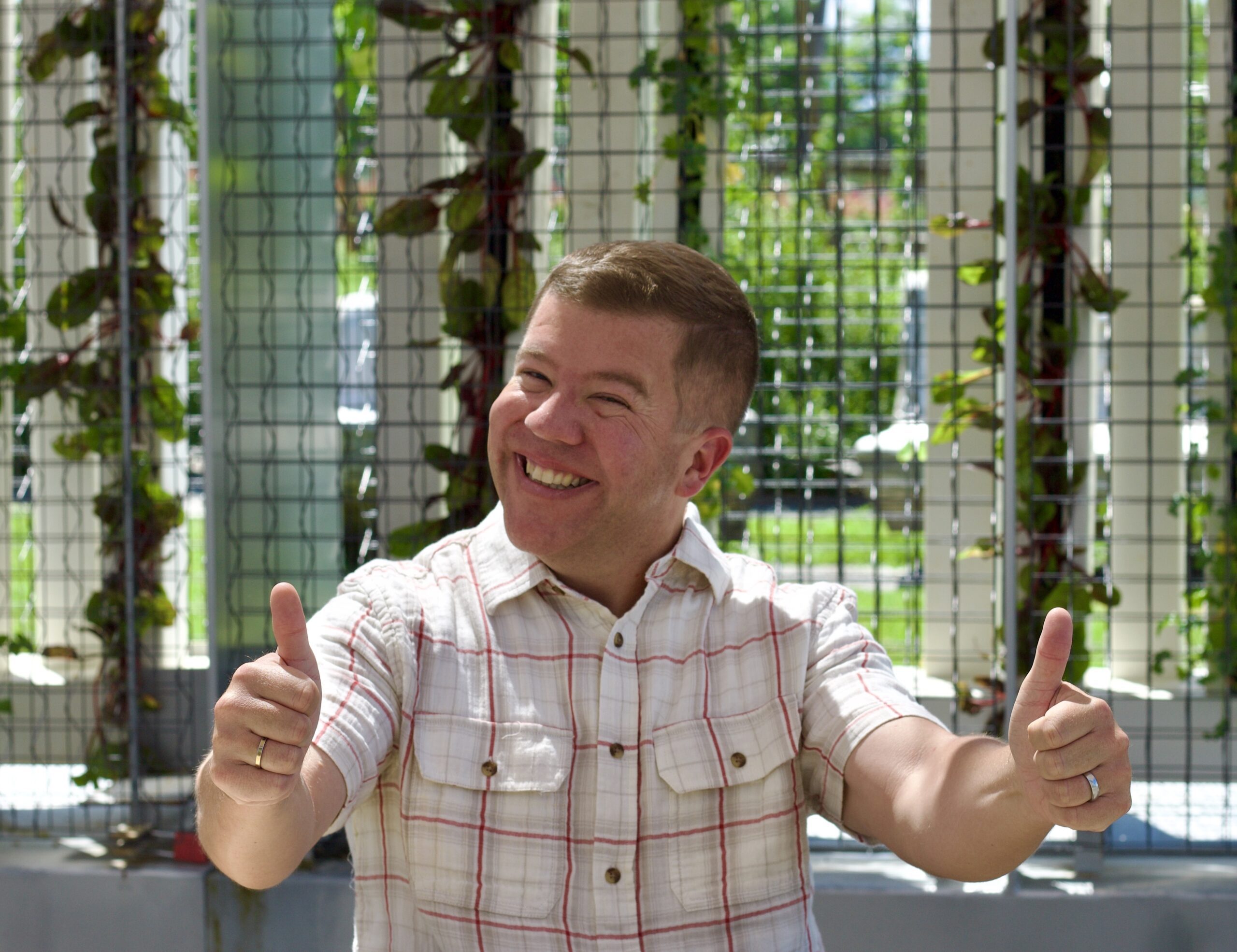Overcoming Bipolar Disorder – This Is The Story Of An Average Joe
This is the story of an average Joe and his story of overcoming bipolar disorder.
He isn’t a celebrity.
He isn’t a sports star.
In fact, he’s like you.
That average Joe is me—John Poehler.
I live with bipolar disorder type 1. It is a mental illness that fluctuates between manic and depressive episodes, along with periods of stability. Bipolar also impacts my ability to function, energy level, motivation, and thoughts.
When you look at society, you can find many examples of pop culture icons and famous individuals diagnosed with bipolar disorder. Personally, I am beyond impressed that they stepped forward to tell their stories and educate those unaware of bipolar disorder. It is a way to help society break down the walls of stigma.
Still, it left me with a nagging unanswered question: “Where are the stories of everyday people?” You know, those of us trying to make a living and live a productive life—the average Joe, so to speak.
To help answer that question, I will tell you my story. Please realize, though, that I am not using myself as an example to toot my horn. On the contrary, I want to show you that yes; I am an everyday person just like you—I am diagnosed with bipolar disorder, but I successfully manage it daily with my treatment plan.
If you live with bipolar disorder or have recently been diagnosed, you can find hope.
Background
Everybody experiences their struggles, trials, and tribulations. Bipolar disorder is one of those things with which I happen to live with. It is something I must manage on an ongoing basis.
If you met me today for the first time without any prior knowledge of my illness, you may not notice anything different about me compared to the next person.
Underneath my big smile and bright eyes, I fight continually to keep bipolar disorder from taking over my mind.
Bipolar is a constant battle that has taken me close to 20 years to overcome. Overcoming bipolar disorder has tested me mentally, physically, academically, spiritually, psychotically, and in every corner of reality.
This mental illness has been the hardest thing I have ever had to overcome—it has touched every aspect of my life, soul, and being. It is not one of those things you can take a couple of pills a day and feel better. It takes persistent work, constant effort, and energy to successfully manage it.
In the end, overcoming bipolar disorder has been one of the greatest things I have ever done.
The Stages of Overcoming Bipolar Disorder
The Beginning
Before my first full-blown psychotic manic episode, I seemed to have everything going for me.
In the late ’90s, I attended Colorado State University in Fort Collins, Colorado, majoring in chemical engineering. My life was on an upward and positive trajectory.
Once bipolar emerged from the shadows, it turned my life upside down. My long-term dreams and goals blew away in a heartbeat. My immediate concern (and those of my doctors) was safety.
Traditionally, after a manic episode, the individual with bipolar dives into a deep depression. That has been my experience and is generally that of those with bipolar disorder type 1.
In the beginning, it was a fight for survival.
For years, my doctors worked with me to find the right combination of medications to manage my bipolar disorder. These meds either had intolerable side effects or left me catatonic. From the beginning, I vowed to myself I wouldn’t just settle. Quality of life is something I simply will not sacrifice. Therefore, I kept searching and trying different treatment methodologies.
Things were so bleak that I even tried electroconvulsive therapy. Yes, it saved my life, but it left me permanently scarred and affected.
As I previously mentioned, overcoming bipolar disorder was the hardest thing I have ever done.
I felt hopeless, discouraged, and every other negative adjective that you can think of.
I was young and had no real-life experience. Instead of trusting my heart and mind, I put my trust in the words and support of my friends, family, and my medical support team. My mind was lying to me and I had no other choice than to put my complete trust in those around me.
During these early years, I was merely surviving—fighting to stay alive.
Thriving and Not Just Surviving
It took me close to a decade before I found a reasonable cocktail of meds to stabilize my bipolar disorder. At this point, I had my experience living through some of the darkest spots that no one should ever visit. These struggles gave me a renewed sense of hope.
During these years, I learned better coping strategies and techniques. As I mentioned, bipolar disorder directly affects your life in every way possible. I explored other techniques to better manage my illness.
Those of us diagnosed with bipolar disorder have our illnesses in common. However, we are all unique individuals. The medication that works for me may not necessarily work for you, and vice versa. Plus, the different strategies I use to manage my bipolar disorder may not have such a beneficial impact on you as it does for me.
The medical model approach created the foundation of my treatment plan. It took me close to 10 years, but I persevered. Medication management and therapy are the two components of the medical model.
These years I wasn’t merely surviving, I was thriving.
Overcoming Bipolar Disorder is Something YOU Can Do
There is no cure for bipolar disorder. I will manage it for the rest of my life. This I accepted many years ago.
Right from the start, I took a proactive stance in managing my illness. I questioned everything and collaborated with my doctor about each stepping stone along my journey. Taking positive action in managing my illness put the control back in my hands. It is empowering and has helped me to grow and continue to learn to this day. If you have questions, I suggest you do the same.
For many years, I struggled with managing my bipolar disorder.
I struggled with my sanity.
After I found a baseline of stability that I could manage, I thought,
“I can get through anything!”
This new sense of hope recharged me.
Bipolar disorder doesn’t just attack your mood. Your energy level, motivation, and overall functionality are also adversely affected. It impacted my life to the point I couldn’t function.
I call my journey The Bipolar Battle because I fight this battle every day. It’s exhausting, taxing, and sometimes so overwhelming that I don’t know where I’ll get the strength to carry on.
Want to know what I do?
I know it might sound cliche, but I take it one day at a time. If you have a rough day, then start again tomorrow. Focus on each day and each day alone.
Getting through the day is enough.
Last Thoughts
My life differs completely from what I envisioned back in 1999. I’m completely okay with that and I’m grateful for each day.
I’ve lived through experiences and situations that most people will never understand or comprehend.
I’m grateful to be alive, to be a father and a husband.
Overcoming bipolar disorder gave me the life I have today. I love my life and wouldn’t have it any other way.
I’m just an average guy.







